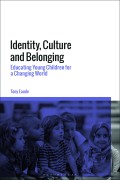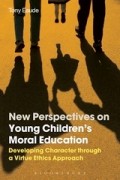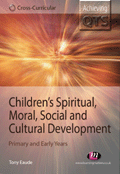‘New Perspectives on Young Children’s Moral Education-Developing Character through a Virtues Ethics Approach’ was published by Bloomsbury in December 2015. Details of how to order are on the Bloomsbury website.
In exploring how to approach young children’s moral education in a world of uncertainty and change, Tony Eaude challenges many current assumptions about education and ethics, arguing that a moral dimension runs through every aspect of life. Ethics is about learning to act and interact appropriately. This calls for an inclusive approach, permeating children’s whole lives rather than occurring only in particular settings, programmes or lessons. Drawing accessibly on research, especially neuroscience and psychology, New perspectives on young children’s moral education discusses how young children learn, highlighting the complex interrelationship between emotion and cognition, culture and identity. The importance of agency, habituation and feedback, within a context of caring relationships and role models, is emphasised. Tony Eaude explores the terms character, virtues and values and how a vocabulary of ethics can help children understand and internalise qualities associated with living ‘a good life’. Empathy, and intrinsic motivation, so that children are equipped to resist strong external pressures, are developed through small, often apparently insignificant, actions. The features of inclusive learning environments which help children belong and practice, and think about, these qualities are considered, highlighting the need for space, care and flexibility. This emphasises the importance of trusted adults attuned to children’s needs, guiding more than telling, providing good role models and exercising judgement. Recognising possible challenges and pitfalls, the book argues for a constructivist approach based on an ethic of care, virtue ethics and an apprenticeship model, where how to act appropriately is exemplified and practiced in real-life situations.





